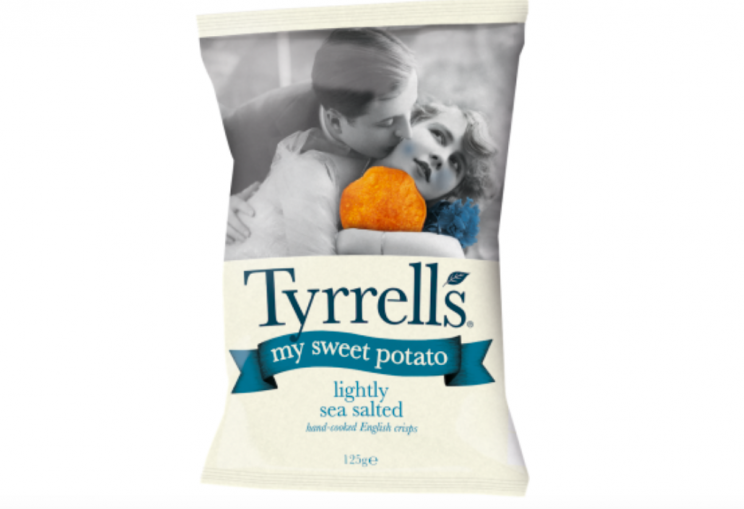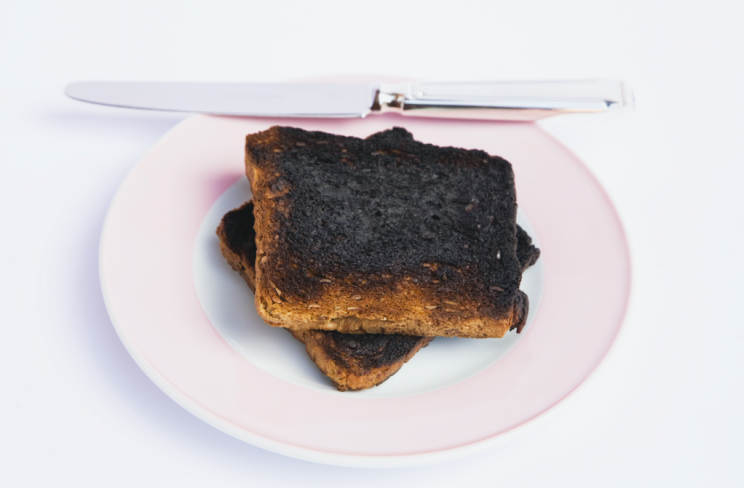Cancer warning for posh crisps that contain high levels of acrylamide

Eating so-called ‘posh crisps’ could cause cancer, according to a study by government-backed scientists.
Tests conducted by Fera Science for the Changing Markets Foundation found that Tyrells ‘Sweet Potato Lightly Salted’ crisps contained more than three times the recommended amount of acrylamide, a known carcinogen.
The crisps were found to contain 2,486 milligrams per kilogram of acrylamide – far higher than the 750 milligrams recommended by EU food standards.
Some supermarket crisps were also highlighted in the study, including Morrisons’ ‘Cheese and Onion Popped Potato Snacks’ and Aldi’s premium ‘Passions Barbeque Flavour Popped Potato Chips’, which both contained twice as much acrylamide than the recommended level.

Alarmingly, nearly one in five potato crisp varieties tested from major food retail outlets in Britain contained high levels of the chemical.
The results come just months after food safety watchdogs launched a major campaign to make the public aware of acrylamide in food, recommending that people not eat burnt toast or overcooked roast potatoes.
Nusa Urbancic, an acrylamide expert at Changing Markets, said: “Eating crisps with high levels of acrylamide increases the risk of cancer for all consumers and it represents a specific concern for children.
MORE: Scientists create graphene-based sieve that is able to make seawater drinkable
MORE: The Pot Noodle easter egg is here and people are very confused by it
“The FSA concluded that children are 2 to 3 times more at risk for cancer due to dietary exposure to acrylamide.
“We are convinced that all companies should be doing whatever is in their power to reduce the levels of this carcinogen in our food.
“This is perfectly feasible and the industry has developed measures to do this already 10 years ago.

“We do not understand why companies, like Tyrells do not put this into practice consistently.”
Responding to the study, a Tyrells crisps spokesman said: “Sweet potato crisps are made from wholly natural vegetables which incur varying changes in their carbohydrate composition in the course of harvesting at different times of the year.
“The FSA stated that studies on human subjects have provided limited and inconsistent evidence of increased risk of developing cancer through raised levels of acrylamide.”
An FSA spokesperson added: “We are committed to reducing acrylamide in food, working with partners and European Commission to find workable solutions.
“The FSA has been actively supporting the food industry in its development of codes of practice on acrylamide reduction for use throughout the food chain.
“The approach will require manufacturers to act on acrylamide or face enforcement action.”
Acrylamide is a chemical which forms naturally in starchy food as a result of burning and cooking at high temperatures.
A legally binding maximum limit for acrylamide in food is being discussed by the European Commission and will be voted on in June.
Top pic: Tyrrell’s

 Yahoo News
Yahoo News 


